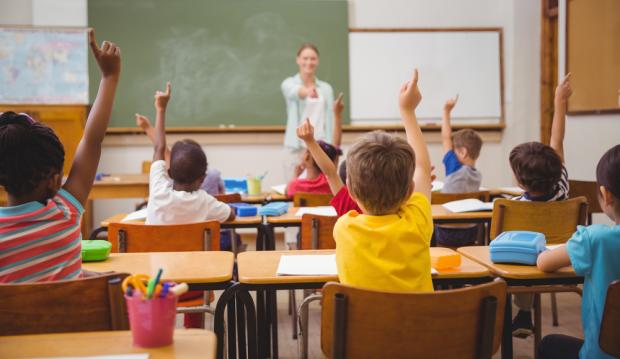Schools are important community resources for education, recreation, and community activities. There are many fire safety laws and regulations for schools that protect our students, their teachers and staff.
Read Fire Prevention in Schools for an overview of school fire prevention laws and regulations. The pamphlet includes information on:
- paper on walls,
- fire drills,
- chemistry labs,
- using special effects,
- reporting fires,
- storing cleaning chemicals,
- and crowd managers for dances.
This information is helpful for conversations between school and fire prevention officials during annual “363 meetings.” The meetings happen before school begins. School, Fire, and Police officials meet to review all hazard evacuation plans. These annual meetings are a good time to review fire prevention issues and team responses to emergencies, including bomb threats.
Guidance on Reopening Schools during the Pandemic
It is important to keep fire safety in mind when planning to re-open schools during the pandemic. Joint emergency planning is key. Additional fire drills may be necessary to reach all students. Increased use and storage of hand sanitizer (a flammable liquid) presents new fire safety concerns, as does use of temporary structures like tents. Here is some guidance for schools and fire prevention officers as they work together to ensure school safety:
- School Emergency Planning and COVID-19 (addresses hand sanitizer as well as other fire safety issues
- Guidance for Safety Considerations for Schools Utilizing Tent Temporarily(joint DFS and Div. of Professional Licensure Advisory
School Fires
From 2016 - 2020, there were 640 fires in schools that caused $7.8 million in property damage. Cooking is the leading cause of fires in schools accounting for 53%. The Mass. Fire Incident Reporting System(MFIRS) indicates 7% of school fires were intentionally-set; 12% were indoor rubbish fires (for which cause is not collected but should be considered intentionally-set); and juvenile firesetting accounted for 4%. Since most school fires occur when school is in session, the data indicates 23% of school fires are most likely started by the students themselves. The Rollins School in Lawrence and Palmer High School had the greatest reported dollar loss, each sustaining $2 million in damages.
School Fire Reporting
Adults Must Respond to Juvenile Firesetters: All Fires Start Small
Youth and juvenile firesetters will continue to set fires until they receive appropriate intervention. Adults do not help the young firesetter if they do not react appropriately and swiftly to every fire. All fires start small. If a series of fires are occurring, and schools only call fire and law enforcement when a “big” fire occurs, that pattern of fire setting is undocumented. The child may not get the help they need, and the entire school community is at risk. This is why it is very important for schools to report every fire.
School Fire Reporting Law
A school fire reporting law, M.G.L. C. 148, S.2A: Reporting of fires in School, was enacted in 2006 requiring school principals to immediately report ALL fires to the local fire department, regardless of size, or who put it out. Fire officials know that all fires start small, so every fire has the potential to rob the community of a valuable asset - the school itself. The Department of Fire Services has created a school fire reporting form local fire departments can customize.
The principal of any public or private school that provides instruction to pupils in any of grades 1 to 12, inclusive, shall immediately report any incident involving the unauthorized ignition of any fire within the school building or on school grounds to the local fire department. The principal shall submit a written report of the incident to the head of the fire department within 24 hours on a form furnished by the Department of Fire Services. The report shall be filed without regard to the extent of the fire or whether there was a response by the fire department. The head of the fire department shall report such incident to the marshal in accordance with section 2.
School Committee Responsibilities
Section 37L. The school committee of each city, town or regional school district shall inform teachers, administrators, and other professional staff of reporting requirements for child abuse and neglect under section 51A of chapter 119 and the reporting requirements for fires under section 2A of chapter 148.
Additional Resources
School Bomb Threats
The State Police Bomb Squad in conjunction with other education, fire and law enforcement agencies has created a guide for preparing for and responding to school bomb threats. They also provide training. The guide can be requested by calling the Fire Investigation Unit at (978) 567-3110 or the Public Information Office at (978) 567-3189.
Contact
Online
Phone
Open 8 a.m.- 4 p.m.
